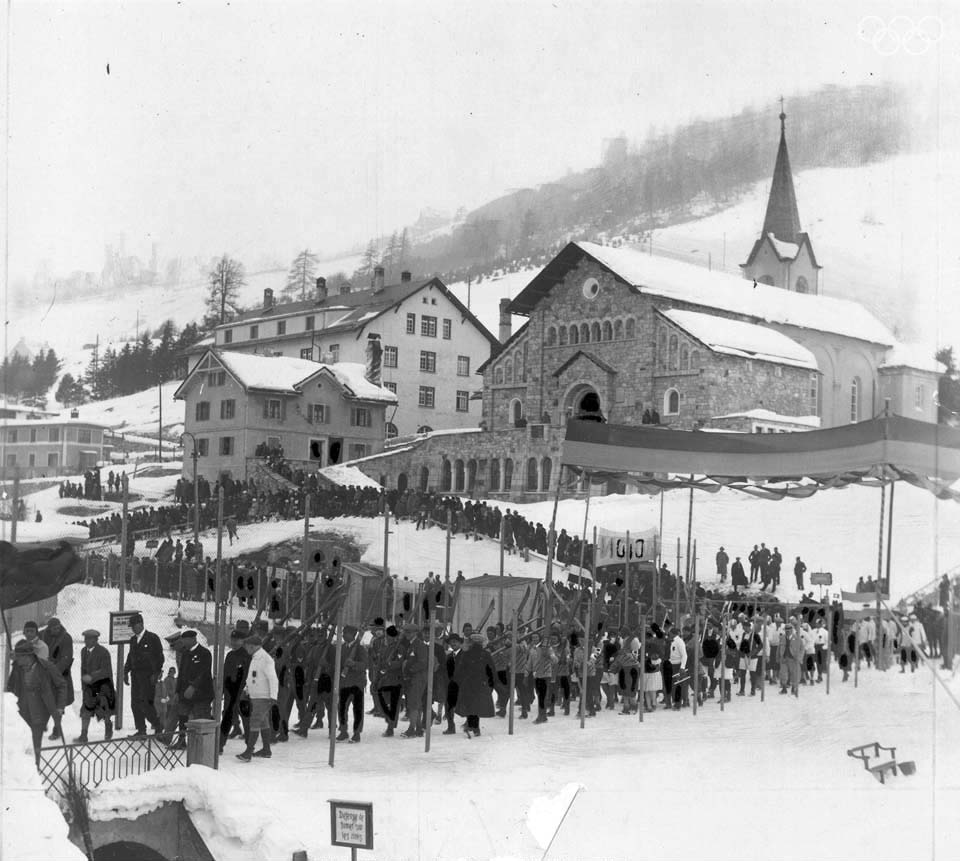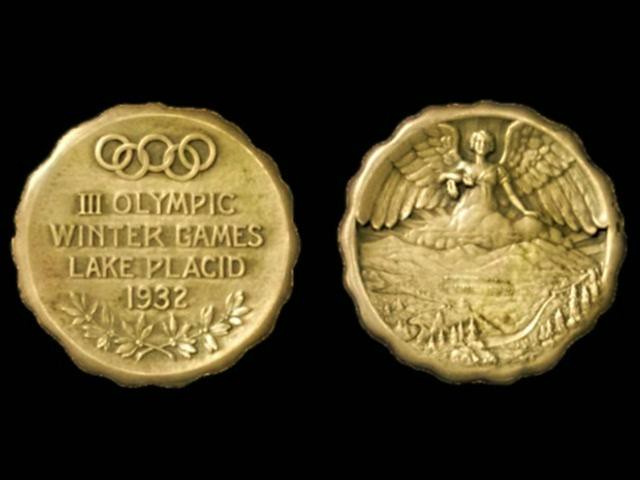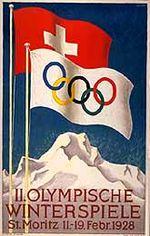European Travels
Late in 1927, members of the American Olympic Committee unofficially looked into whether Lake Placid would be in a position to hold the III Olympic Games if the bid was awarded to the United States (Lattimer, 43). Dr. Godfrey Dewey, the son of Melvil Dewey, was a passionate and capable winter sportsman who took it upon himself to travel to Europe early in 1928 to study the conditions at nine prominent Europeans winter resorts, including St. Moritz in Switzerland and Chamonix in France. He also carefully studied the way the Games were run when he attended the 1928 Olympics in St. Moritz (poster shown on the right) as the manager of the U.S. ski. At the Games he had the honor of being the flag bearer for the opening and closing ceremonies. While abroad Godfrey analyzed the nations represented and the sports that they took part in. He also examined housing accommodations, the financial budget as well as the Olympic facilities, committees, health and safety measures and general organization so that he could project an accurate picture of the Winter Olympics upon his return to Lake Placid (Lattimer, 43).


(Opening Ceremony of the 1928 Games in St. Moritz) (The Olympic Stadium in Chamonix, site of the first Winter Olympics in 1924)
OLYMPIC CEREMONY DATABASE AP File Photo
His Conclusion
During his travels Godfrey concluded that Lake Placid had the things that money couldn’t buy, winter climate, terrain and experience with winter sports. When Godfrey returned to the States he worked tirelessly to prepare Lake Placid for securing the bid. Though other organizations such as Lake Placid’s Kiwanis Club and Chamber of Commerce were involved in the process, Jack Shea, a two time gold medalist at the 1932 Olympics, said it best when he asserted, “without Godfrey Dewey, it would not have been done” (Manchester, 15).


(Jack Shea, American Speedskater) (A Gold Medal from the 1932 Winter Olympic Games)
© Lakeplacid.com Leo Bar PIX IN MOTION

